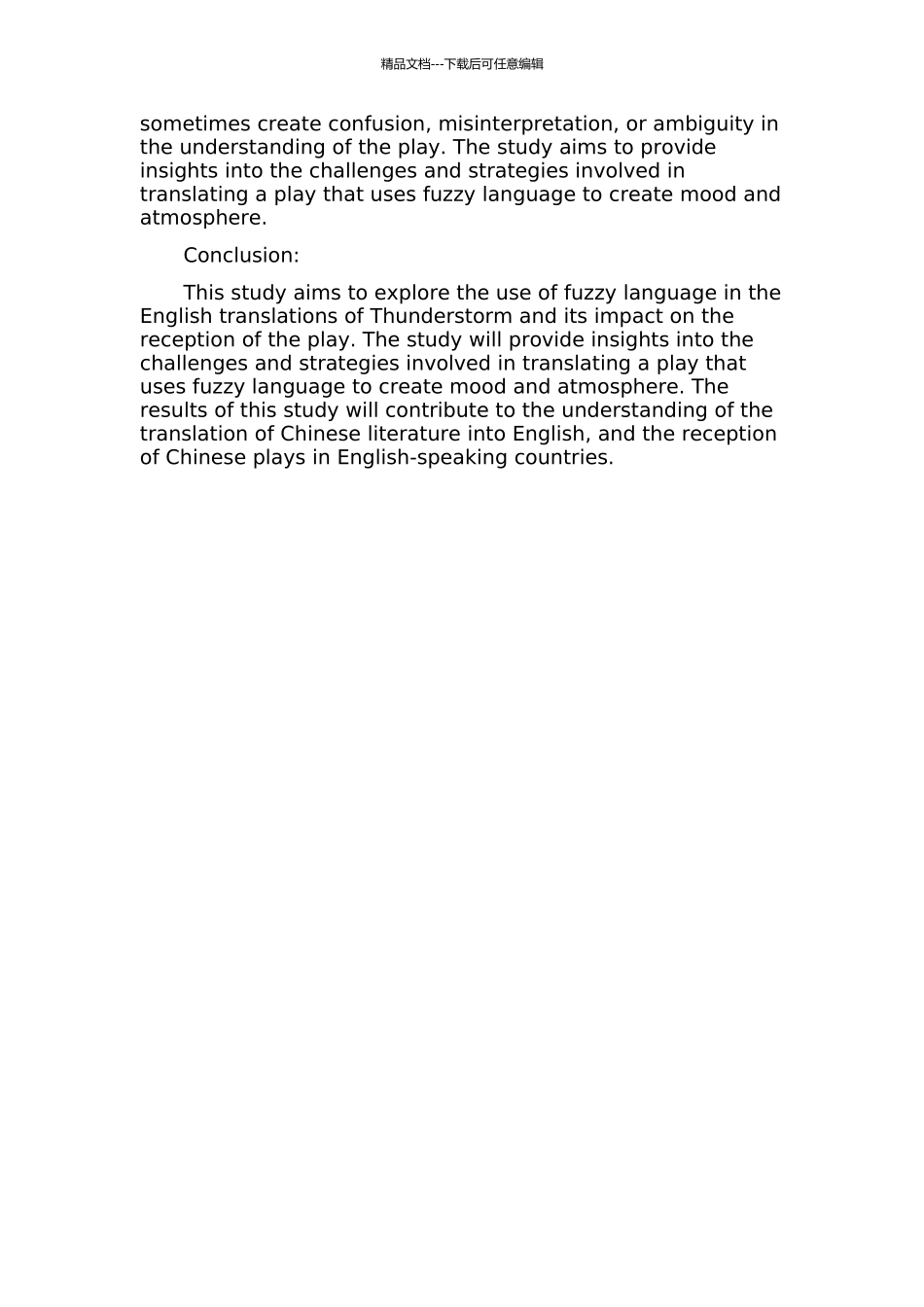精品文档---下载后可任意编辑《雷雨》英译本中语用模糊现象分析的开题报告Introduction:Thunderstorm (雷雨)is a play written by Cao Yu (曹禺)in 1933, which describes the conflicts and struggles among the four generations of a wealthy family in China during the 1920s and 1930s. The play is widely known for its vivid portrayal of characters and the use of language to create mood and atmosphere. In this study, I will focus on the use of fuzzy language in the English translations of Thunderstorm and analyze its effects on the reception of the play.Literature Review:Fuzzy language (模糊语)refers to words or expressions used to describe ambiguous or imprecise concepts, which can be used to create various meanings and interpretations of a text. Previous studies on Thunderstorm have focused on the translation of cultural elements, language use, and the portrayal of characters. However, few studies have explored the use of fuzzy language in the English translations of Thunderstorm, and its impact on the reception of the play.Methodology:To achieve the research objectives, this study will use qualitative research methods to analyze the English translations of Thunderstorm. A corpus of three English translations of Thunderstorm will be compiled and analyzed to identify instances of fuzzy language use. The analysis will focus on the use of fuzzy language to depict the characters, events, settings, and emotions in the play. The identified examples of fuzzy language use will be analyzed in the context of the source text to determine if they accurately reflect the intended meaning of the original text.Expected Results:The analysis of the use of fuzzy language in the English translations of Thunderstorm is expected to reveal the various strategies used by the translators to convey the intended meaning of the source text. The study is expected to reveal how the use of fuzzy language affects the reception of the play by English-speaking audiences. It is expected that the use of fuzzy language in the translations of Thunderstorm can 精品文档---下载后可任意编辑sometimes create confusion, misinterpretation, or ambiguity in the understanding of the play. The study aims to provide insights into the challenges and strategies involved in translating a play that uses fuzzy language to create mood and atmosphere.Conclusion:This study aims to explore the use of fuzzy language in the English translations of Thunderstorm and its impact on the reception of the play. The study will provide insights into the challenges and strategies involved in translating a play that uses fuzzy language to create mood and atmosphere. The results of this study will contribute to the understanding of the translation of Chinese literature into English, and the reception of Chinese plays in English-speaking countries.

